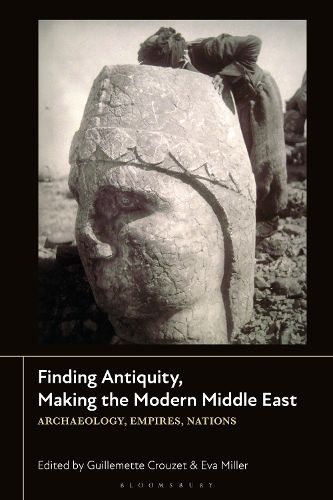Readings Newsletter
Become a Readings Member to make your shopping experience even easier.
Sign in or sign up for free!
You’re not far away from qualifying for FREE standard shipping within Australia
You’ve qualified for FREE standard shipping within Australia
The cart is loading…






This volume presents innovative studies of how the emerging disciplines of archaeology and ancient history shaped the modern Middle East, and how they were in turn shaped by competing visions and agendas of empires and new nations. The Middle East was a region constructed through its putatively unique relationship to the whole world's past-and its special relevance for the destiny of empires and nations. Over the course of the nineteenth and early twentieth centuries, European empires fought for influence and control over this 'cradle' of civilization, empire and monuments, and local powers and people in the Middle East worked with and against these historical and heritage frameworks in their own quests for self-determination.
In this volume, contributors from the fields of history, archaeology and heritage explore how historical consciousness about the Middle East was contested in the nineteenth and early twentieth century through excavation and interpretation of the past. Chapters span West Asia and North Africa, covering Turkey, Iraq, Iran, Syria, Lebanon, Israel, Palestine, Egypt and Tunisia, and the imperial history of Britain, France, Germany and the Ottoman Empire. The result is an original contribution to our understanding of the origins and influence of Middle Eastern archaeology, which resonates today in contemporary discussions on heritage discourses and practices.
$9.00 standard shipping within Australia
FREE standard shipping within Australia for orders over $100.00
Express & International shipping calculated at checkout
This volume presents innovative studies of how the emerging disciplines of archaeology and ancient history shaped the modern Middle East, and how they were in turn shaped by competing visions and agendas of empires and new nations. The Middle East was a region constructed through its putatively unique relationship to the whole world's past-and its special relevance for the destiny of empires and nations. Over the course of the nineteenth and early twentieth centuries, European empires fought for influence and control over this 'cradle' of civilization, empire and monuments, and local powers and people in the Middle East worked with and against these historical and heritage frameworks in their own quests for self-determination.
In this volume, contributors from the fields of history, archaeology and heritage explore how historical consciousness about the Middle East was contested in the nineteenth and early twentieth century through excavation and interpretation of the past. Chapters span West Asia and North Africa, covering Turkey, Iraq, Iran, Syria, Lebanon, Israel, Palestine, Egypt and Tunisia, and the imperial history of Britain, France, Germany and the Ottoman Empire. The result is an original contribution to our understanding of the origins and influence of Middle Eastern archaeology, which resonates today in contemporary discussions on heritage discourses and practices.